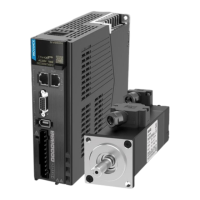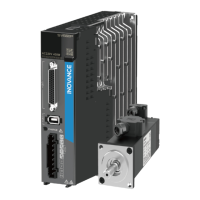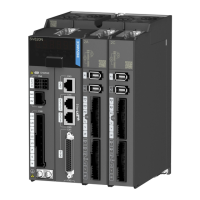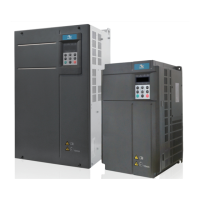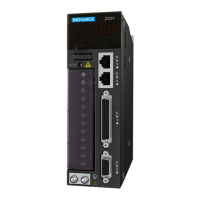Certification and Standard Requirements
‑98‑
Main circuit wiring requirements
On‑site installation of output terminals (such as P⊕, C, and NΘ) is not allowed.
● Terminals P⊕, C, and NΘ are used to connect optional parts. Do not connect these
terminals to an AC power supply.
● To protect the main circuit, separate and cover the surface that may come into
contact with the main circuit.
● The control circuit is the internal safety extra‑low voltage (SELV) circuit that must
be strictly insulated and isolated from other circuits. Make sure that the control
circuit is connected to the external SELV circuit.
● Do not allow unwanted objects to enter the wiring part of the terminal block.
● Do not solder the twisted conductors.
● The tightening torque may vary with terminals. Tighten terminal screws with the
specified tightening torque. You can use a torque screwdriver, torque ratchet, or
torque wrench to tighten terminal screws.
● When using an electric screwdriver to tighten terminal screws, set the electric
screwdriver to low speed to prevent damage to the terminal screws.
● Tighten the terminal screws with an angle not higher than 5°. Failure to comply
may damage the terminal screws.
Wiring requirements for the control circuit
Observe the requirements in UL508 during wiring.
Cable requirements
Cable dimensions must be compliant with requirements in NEC (National Electric
Code) and CEC (Canadian Electrical Code) Part I and local regulations.
● Use cables with copper conductors.
● The recommended cable for the main circuit is a class 2 600V indoor heat‑resistant
PVC cable with continuous maximum allowable temperature of 75 ° C. The
following conditions are used as premises:
■ Ambient temperature: < 40°C.
■ Normal operating ratings
If the recommended cable specifications for peripheral devices or optional parts
exceed the applicable cable specification range, contact Inovance.
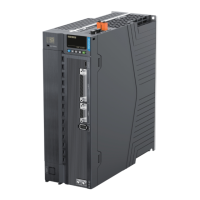
